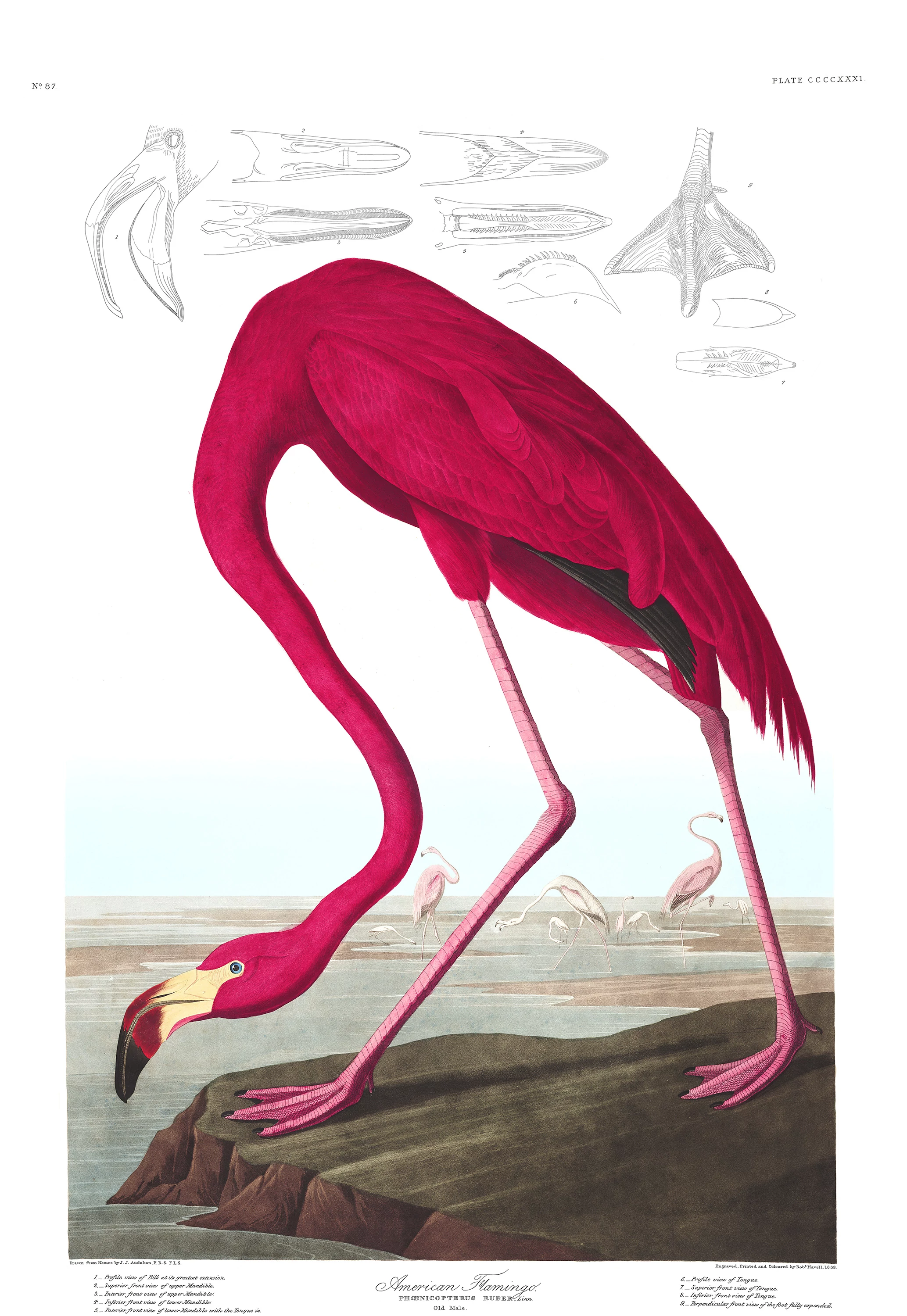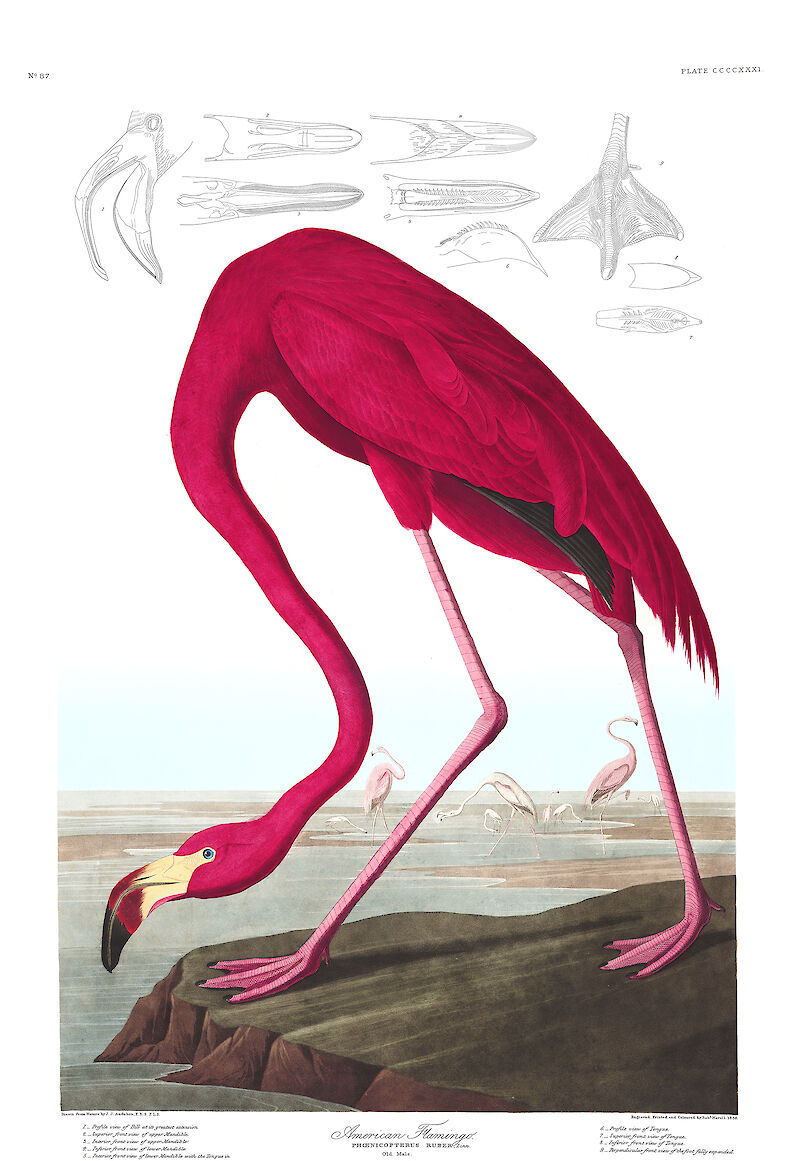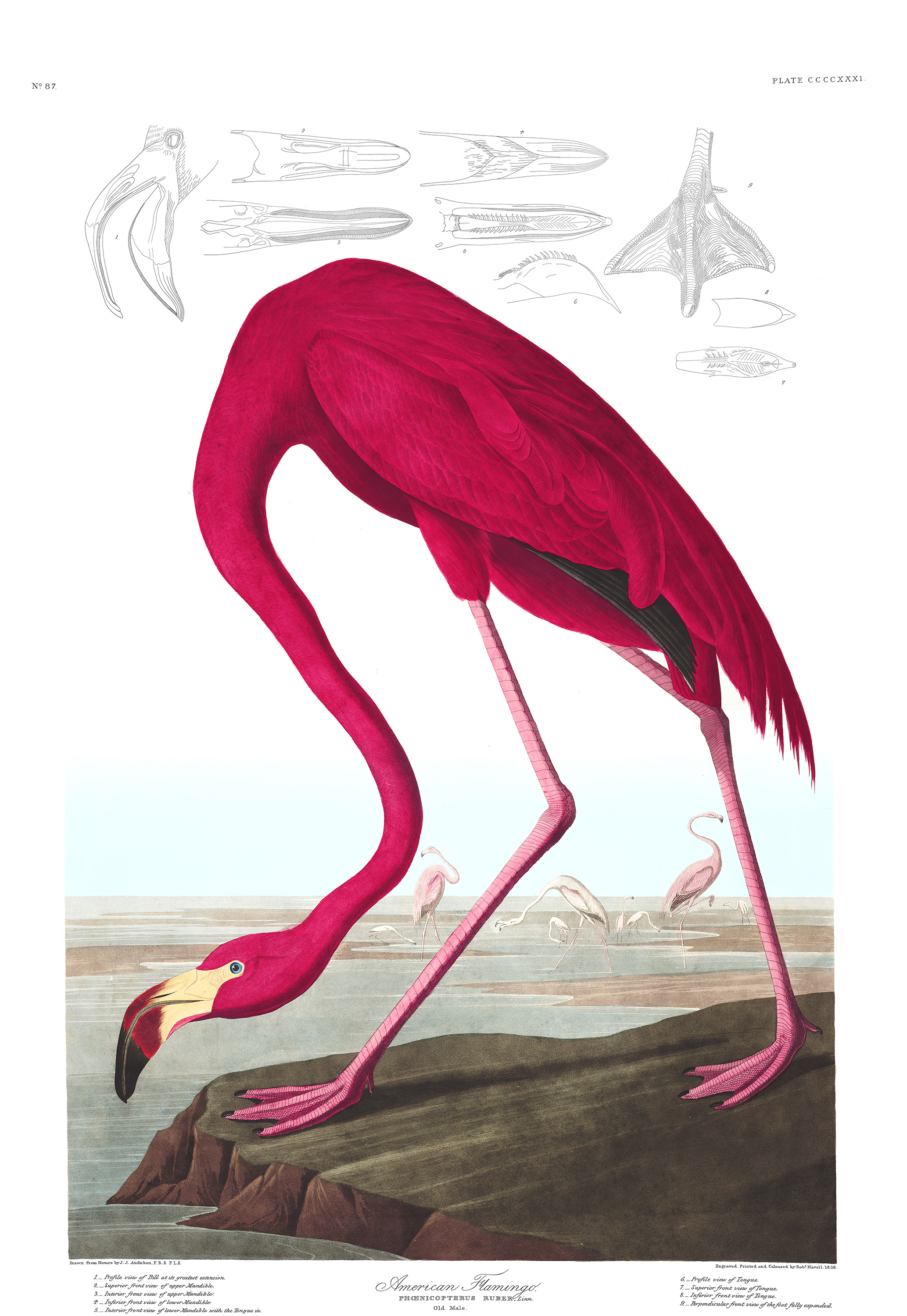


“The Flamingo is a kind of bird that lives in lagoons having a communication with the sea. This bird makes its nest on the shore of the same lagoon, with the mud which it heaps up to beyond the level of the water. Its eggs are about the size of those of a Goose; it only lays two or three at a time, which are hatched about the end of May. The young when they break the shell have no feathers, only a kind of cottony down which covers them. They immediately betake themselves to the water to harden their feet. They take from two to three months before their feathers are long enough to enable them to fly. The first year they are rose-coloured, and in the second they obtain their natural colour, being all scarlet; half their bill is black, and the points of the wings are all black; the eyes entirely blue. Its flesh is savoury, and its tongue is pure fat. It is easily tamed, and feeds on rice, maize-meal, &c. Its body is about a yard high, and the neck about half as much. The breadth of the nest, with little difference, is that of the crown of a hat. The way in which the female covers the eggs is by standing in the water on one foot and supporting its body on the nest. This bird always rests in a lagoon, supporting itself on one leg alternately; and it is to be observed that it always stands with its front to the wind.”
— John James Audubon, from Birds of America
